Graduate Program "Dementia"
Graduates
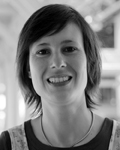 Charlotte Berendonk (Gerontology)
Charlotte Berendonk (Gerontology)
Life story work in residential long term care of persons with dementia – Care staffs‘ subjective theories
Fellows: Prof. Dr. Andreas Kruse, Prof. Dr. Hartmut Remmers
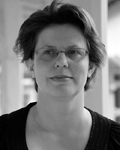 Esther Berkemer (Palliative Care)
Esther Berkemer (Palliative Care)
Palliative care and dementia – Implications for person-centered care in nursing homes
Fellows: Prof. Dr. Hartmut Remmers, Prof. Dr. Andreas Kruse
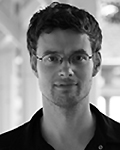 Florian Bödecker (Educational Science)
Florian Bödecker (Educational Science)
Couple conflicts in dementia
Fellows: Prof. Dr. Rudolf Tippelt, Prof. Dr. Andreas Kruse
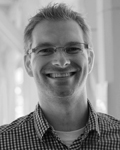 Matthias Hoben (Nursing Science)
Matthias Hoben (Nursing Science)
Measuring organizational context and research use in German nursing homes – Translation, adaptation and psychometric testing of the Alberta Context Tool (ACT) and the Research Use (RU) Measure
Fellows: Prof. Dr. Johann Behrens, Prof. Dr. Andreas Kruse
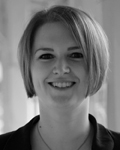 Katrin Jekel (Gerontopsychiatry)
Katrin Jekel (Gerontopsychiatry)
Direct assessment of instrumental activities of daily living in patients with mild cognitive impairment
Fellows: Prof. Dr. Lutz Frölich, Prof. Dr. Hans-Werner Wahl
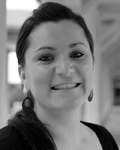 Nele Christin Lemke (Sports Science)
Nele Christin Lemke (Sports Science)
Validation of a dual-task measurement method for patients with mild to moderate dementia
Fellows: PD Dr. Klaus Hauer, Prof. Dr. Peter Oster
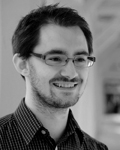 Philipp Novotny (Assistance Systems)
Philipp Novotny (Assistance Systems)
Natural and artificial light as a support for advanced dementia
Fellows: Prof. Dr. Ernst Pöppel; Dr. Herbert Plischke
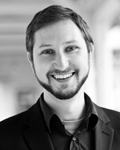 Carsten Rupp (Biologie)
Carsten Rupp (Biologie)
The pathophysiological function of APP in Alzheimer’s Disease
Fellows: Prof. Dr. Stefan Kins
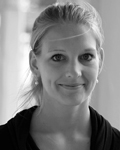 Laura I. Schmidt (Psychology)
Laura I. Schmidt (Psychology)
Performance on everyday technology tasks in old age – Examining the effects of cognitive impairment, interface complexity and technology experience
Fellows: Prof. Dr. Hans-Werner Wahl, Prof. Dr. Ernst Pöppel, Dr. Herbert Plischke
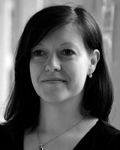 Stephanie Schmidt (Ethics)
Stephanie Schmidt (Ethics)
Autonomy and dementia – What promotes or disturb autonomy / self-determination of dementia sufferers in nursing home
Fellows: Prof. Dr. Klaus Tanner, Prof. Dr. Andreas Kruse
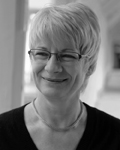 Gabrielle Sieber (Geriatrics)
Gabrielle Sieber (Geriatrics)
The nutritional situation of people with dementia in the home environment
Fellows: Prof. Dr. Dorothee Volkert, Prof. Dr. Hartmut Remmers
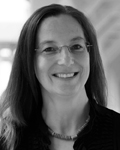 Gesina Stärz (Ethics)
Gesina Stärz (Ethics)
Ethics and dementia – Ethic implications for the solution of social challenges
Fellows: PD Dr. Stephan Sellmaier, Prof. Dr. Andreas Kruse
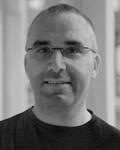
Stefan Wesselmann (History of Medicine)
Old age and dementia in the discourse of the mid-18th century – Johann August Unzer and his environment
Fellows: Prof. Dr. Andreas Kruse, Prof. Dr. Wolfgang U. Eckart
![]()
Fellows I Scientific Directors
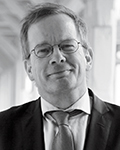
Prof. Dr. Dr. h.c. Andreas Kruse
Institute of Gerontology, Heidelberg University
Bergheimer Straße 20
D-69115 Heidelberg
Phone: +49 (0)6221 54 81 81
kruse(at)nar.uni-heidelberg.de
 Prof. Dr. Dr. h.c. Konrad Beyreuther
Prof. Dr. Dr. h.c. Konrad Beyreuther
Netzwork Aging Research, Heidelberg University
Bergheimer Straße 20
D-69115 Heidelberg
Phone: +49 (0)6221 54 68 45
beyreuther(at)nar.uni-heidelberg.de
Further Fellows
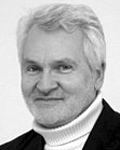
Prof. Dr. Johann Behrens
(Nursing Science)
Institut für Gesundheits- und Pflegewissenschaft, Martin-Luther-Universität Halle-Wittenberg
Magdeburger Straße 8
D-06112 Halle (Saale)
Phone: +49 (0)345 557 4450
johann.behrens(at)medizin.uni-halle.de
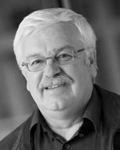
Prof. Dr. Wolfgang U. Eckart
(Medical History)
Institut für Geschichte und Ethik der Medizin, Heidelberg University
Im Neuenheimer Feld 327
D-69120 Heidelberg
Phone: +49 (0)6221 54 82 12
direktor(at)histmed.uni-heidelberg.de
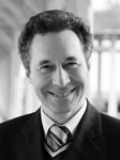 Prof. Dr. Lutz Frölich
Prof. Dr. Lutz Frölich
(Gerontopsychiatry)
Abteilung Gerontopsychiatrie, Zentralinstitut für Seelische Gesundheit
J5
D-68159 Mannheim
Phone: +49 (0)621 1703 3001
lutz.froelich(at)zi-mannheim.de
![]()
 apl. Prof Dr. Klaus Hauer
apl. Prof Dr. Klaus Hauer
(Sports Science)
Bethanien-Krankenhaus, Geriatrisches Zentrum, Heidelberg
Rohrbacherstr. 149
D-69126 Heidelberg
Phone: +49 (0)6221 319 15 32
khauer(at)bethanien-heidelberg.de
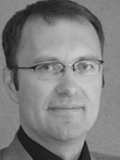
Prof. Dr. Stefan Kins
(Biology)
Abt. Humanbiologie und Humangenetik, FB Biologie, TU Kaiserslautern
Erwin-Schrödinger-Straße 13
D-67663 Kaiserslautern
Phone: +49 (0)631 205 21 06
s.kins(at)biologie.uni-kl.de
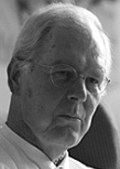
Prof. Dr. Peter Oster
(Geriatrics)
ehem. Ärztlicher Direktor Bethanien-Krankenhaus, Geriatrisches Zentrum, Heidelberg
Bergheimer Straße 20
D-69115 Heidelberg
Phone: +49 (0)6221 54 81 01
oster(at)nar.uni-heidelberg.de
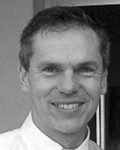
Dr. Herbert Plischke
(Assistance Systems)
Generation Research Program (GRP), Humanwiss. Zentrum, LMU München
Prof.-Max-Lange-Platz 11
D-83646 Bad Tölz
Phone: +49 (0)8041 799 29 28
plischke(at)grp.hwz.uni-muenchen.de
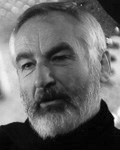
Prof. Dr. Ernst Pöppel
(Assistance Systems)
Generation Research Program (GRP), Humanwiss. Zentrum, LMU München
Prof.-Max-Lange-Platz 11
D-83646 Bad Tölz
Phone: +49 (0)8041 799 29 0
Poeppel(at)grp.hwz.uni-muenchen.de
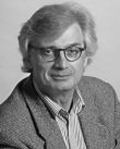 Prof. Dr. Hartmut Remmers
Prof. Dr. Hartmut Remmers
(Palliative Care)
Fachbereich Humanwissenschaften/Pflegewissenschaft, Universität Osnabrück
Albrechtstraße 28
D-49069 Osnabrück
Phone: +49 (0)541 969 2474
remmers(at)uni-osnabrueck.de
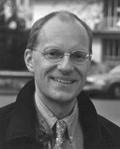
Prof. Dr. med. Cornel Sieber
(Geriatrics)
Institut für Biomedizin des Alterns, Friedrich-Alexander-Universität Erlangen-Nürnberg
Heimerichstraße 58
D-90419 Nürnberg
Phone: +49 (0)911 300 05 0
cornel.sieber(at)iba.fau.de
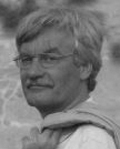
Prof. Dr. Klaus Tanner
(Ethics)
Wissenschaftlich-Theologisches Seminar, Heidelberg University
Kieselgasse 1
D-69117 Heidelberg
Phone: +49 (0)6221 54 32 92
klaus.tanner(at)wts.uni-heidelberg.de
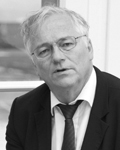
Prof. Dr. Rudolf Tippelt
(Educational Science)
Lehrstuhl für Allgemeine Pädagogik und Bildungsforschung, LMU München
Leopoldstraße 13
D-80802 München
Phone: +49 (0)89 2180 51 40
tippelt(at)edu.lmu.de
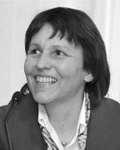 Prof. Dr. Dorothee Volkert
Prof. Dr. Dorothee Volkert
(Nutrition Science)
Theo und Friedl Schöller-Stiftungsprofessur für Klinische Ernährung im AlterInstitut für Biomedizin des Alterns, Friedrich-Alexander-Universität Erlangen-Nürnberg
Heimerichstraße 58
D-90419 Nürnberg
Phone: +49 (0)911 300 05 0
dorothee.volkert(at)iba.fau.de
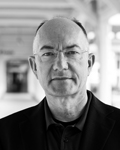 Prof. Dr. Hans-Werner Wahl
Prof. Dr. Hans-Werner Wahl
(Psychology)
Department of Psychological Ageing Research, Heidelberg University
Bergheimer Staße 20
D-69115 Heidelberg
Phone: +49 (0)6221 54 81 10
wahl(at)nar.uni-heidelberg.de
Curriculum
The organisation of the modules are a major component because it is understood to be part of the development of teaching skills in the field of dementia. For each discipline there is a basis- and advanced module planned. The basis modules will take place in meetings of 2 days each and in which basis modules of at least 2 disciplines are taught. Thereby these days are timely planned as followed:
Day 0: Arrival of the external scholarship holders
Day 1: Introduction and discussion of basis modules
Day 2: Continuation of the introduction and discussion of basis modules; after 15:00 homeward journey for the external scholarship holders.
The basis modules are compiled by the scholarship holders with continuous support of the supervising university lecturer. The introduction of the basis modules are performed by the scholarship holders (with support of the university lecturer). At the discussion, special attention should be paid to the connection of the entire curriculum.
With the basis modules, the main emphasis lies in the presentation of dementia through the perspective of the particular reference discipline. With the advanced modules, main emphasis should be on the consolidation of the disciplinary view as well as the perspectives of the interdisciplinary discourse. What possibilities of interdisciplinarity in teaching, research and practice are recognizable?
At the discussion, mainly in the advanced modules (as well as in other topics), the invitation of representatives of “superior” practise should be considered thus to the task of the research consortium- to promote, to fulfil the translation from theory to practice.
Dates:
- 11./12.05.2010 Biology/ Gerontopsychiatry (Kins, Fröhlich/ Schröder)
- 15./16.06.2010 Geriatrics/ Nutrition/ Sports Science (Sieber/ Hauer)
- 27./28.07.2010 Nursing Science/ Palliative Care (Remmers/ Behrens/ Kruse)
- 04./05.10.2010 Curriculum Development
- 02./03.11.2010 Gerontology/ Psychology (Kruse/Wahl)
- 17./18.01.2011 Ethics/Philosophy (Tanner/Sellmaier)
- 21./22.02.2011 Bildungswissenschaft/Assistenzsysteme (Tippelt/Plischke/Pöppel)
- N.N. Ethnology/Literaturwissenschaft (Hornbacher/Brosius/Sax/Kiesel)


